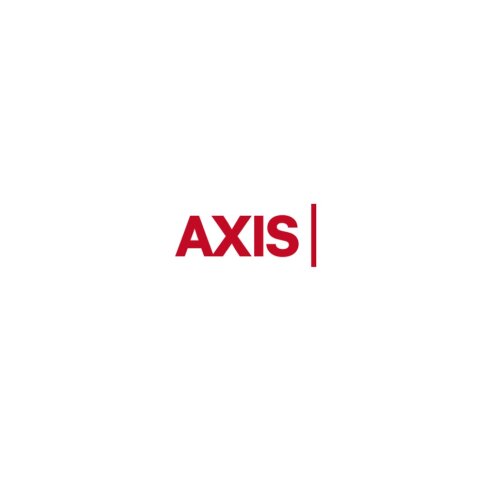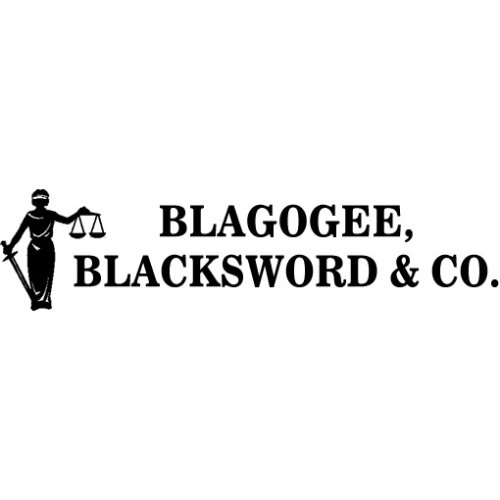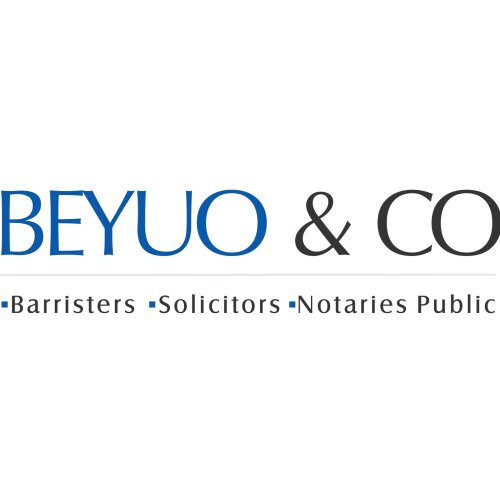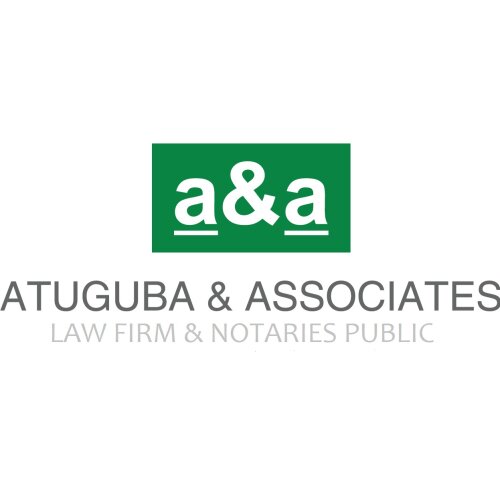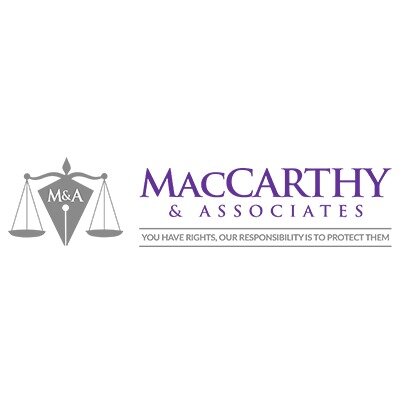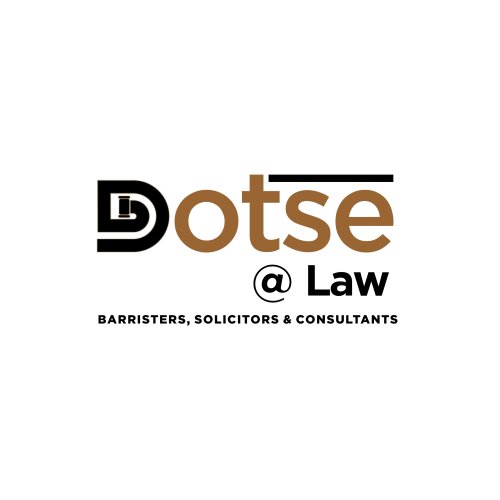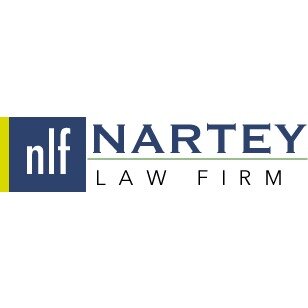Best Energy, Environment & ESG Lawyers in Accra
Share your needs with us, get contacted by law firms.
Free. Takes 2 min.
List of the best lawyers in Accra, Ghana
About Energy, Environment & ESG Law in Accra, Ghana
Energy, Environment, and ESG (Environmental, Social, and Governance) law in Accra, Ghana focuses on regulating how individuals and organizations interact with natural resources, the environment, and society. The rapid development of Ghana's energy sector, especially in oil, gas, and renewables, brings new challenges like environmental management, sustainable operations, and compliance with both local and international standards. ESG practices, once considered voluntary, are now increasingly required by investors and regulators. In Accra, lawyers specializing in this field help clients navigate the complex legal frameworks that govern energy development, environmental protection, and sustainability initiatives.
Why You May Need a Lawyer
There are many circumstances where an experienced lawyer can provide vital guidance in the Energy, Environment, and ESG sector in Accra. Common situations include:
- Securing licences and permits for energy projects such as oil, gas, or renewable installations
- Negotiating Power Purchase Agreements or joint venture contracts for energy ventures
- Ensuring compliance with environmental regulations during construction or operations to avoid penalties and reputational damage
- Addressing allegations of environmental pollution or misconduct and representing clients before regulatory bodies
- Preparing for environmental impact assessments and public consultations for major projects
- Managing disputes over land, compensation, or natural resource use
- Implementing ESG frameworks to meet international investor expectations and legal obligations
- Responding to local community demands or governance issues in relation to large projects
- Staying up-to-date with evolving regulations and standards, which can impact project feasibility and operations
In these and other areas, a lawyer helps minimize risk, ensure compliance, and protect your business, project, or personal interests.
Local Laws Overview
In Accra, energy, environmental, and ESG regulations are shaped by both national legislation and international agreements that Ghana is a party to. Key laws and frameworks include:
- Energy Commission Act, 1997 (Act 541) - Establishes the Energy Commission, regulating all aspects of energy production, supply, and use in Ghana, including licensing of operators in the energy sector.
- Environmental Protection Agency Act, 1994 (Act 490) - Establishes the EPA, which is responsible for enforcing environmental laws, conducting environmental impact assessments, and granting environmental permits.
- Petroleum (Exploration and Production) Act, 2016 (Act 919) - Governs upstream oil and gas activities, including exploration, development, and production.
- Renewable Energy Act, 2011 (Act 832) - Facilitates the development, management, and utilization of renewable energy sources.
- Water Resources Commission Act, 1996 (Act 522) - Regulates the use and management of water resources.
- Hazardous and Electronic Waste Control and Management Act, 2016 (Act 917) - Sets out rules and standards for safe management and disposal of hazardous and electronic waste.
- Minerals and Mining Act, 2006 (Act 703) - Regulates the exploration and mining of minerals, including requirements for environmental management and community engagement.
In addition to legal requirements, ESG reporting and compliance are becoming increasingly important due to global trends and expectations from international investors and buyers. Various sector-specific regulations and local by-laws within the Accra Metropolitan Area may also apply.
Frequently Asked Questions
What is ESG, and why does it matter in Ghana?
ESG stands for Environmental, Social, and Governance standards. These are criteria used to measure a company's ethical impact and sustainability. In Ghana, ESG is becoming essential as investors and regulators expect companies to manage their environmental impacts, ensure fair treatment of workers and communities, and operate with transparency and accountability.
Who regulates the energy sector in Accra?
The Energy Commission regulates the energy sector, while the Public Utilities Regulatory Commission oversees tariffs and service quality. Both are supported by the Ministry of Energy and work closely with the Environmental Protection Agency when it comes to environmental matters.
How do I obtain an environmental permit for my project?
You must apply to the Environmental Protection Agency (EPA), submitting an environmental impact assessment for review. The EPA will evaluate the potential effects of your project and may require public consultations before granting a permit.
What are the consequences of environmental non-compliance?
Environmental non-compliance can result in fines, suspension of business operations, legal actions, and reputational harm. In severe cases, the authorities may revoke project licences.
Do ESG requirements apply to small businesses?
While large companies are the main focus of ESG regulations, small businesses can also be required to comply, especially if they are part of a supply chain for larger firms, receive international funding, or operate in regulated industries.
Is renewable energy regulated differently from oil and gas?
Yes. Renewable energy is principally regulated under the Renewable Energy Act, which has different licensing, operational, and compliance requirements compared to the oil and gas sector, which is governed by the Petroleum (Exploration and Production) Act.
What is an environmental impact assessment?
An environmental impact assessment (EIA) is a study required for most major projects. It evaluates how a proposed activity might affect the environment and recommends mitigation measures. The EIA must be submitted to and approved by the EPA before a project begins.
How is waste managed under Ghanaian law?
Ghana has specific laws for managing general, hazardous, and electronic waste. Businesses must comply with procedures for storage, collection, transportation, recycling, and disposal, ensuring minimal harm to the environment.
Can communities challenge energy or mining projects?
Yes. Ghanaian law gives communities the right to participate in environmental decision-making, and they can raise objections during public consultations or seek redress if their rights or the environment are threatened.
How can I stay updated on changes in energy and environmental regulations?
The best way is to consult government websites, engage with trade associations, subscribe to legal updates, or work with a local lawyer specializing in Energy, Environment, and ESG law.
Additional Resources
Here are some organizations and governmental bodies that can provide information or support related to Energy, Environment, and ESG in Accra, Ghana:
- Energy Commission of Ghana
- Environmental Protection Agency (EPA)
- Ministry of Energy
- Public Utilities Regulatory Commission (PURC)
- Water Resources Commission
- Ghana Investment Promotion Centre (GIPC)
- Ghana National Chamber of Commerce and Industry
- Chamber of Mines
- Environmental NGOs and advocacy groups active in Accra
- Ghana Bar Association (for finding legal professionals)
Next Steps
If you believe you need legal assistance with an Energy, Environment, or ESG issue in Accra, take the following steps:
- Identify the specific issue or concern you are facing
- Gather any relevant documents, permits, contracts, or correspondence
- Research and reach out to qualified lawyers or law firms with experience in Energy, Environment, and ESG matters
- Contact the relevant regulatory body if you require clarification on licensing, compliance, or reporting requirements
- Ensure that your lawyer is familiar with the latest developments in national and local laws pertaining to your sector
- Schedule a legal consultation to discuss your situation and receive tailored advice before taking further action
Taking prompt action and seeking professional legal advice early can help protect your interests, ensure compliance, and support the sustainable success of your operations or initiatives in Accra, Ghana.
Lawzana helps you find the best lawyers and law firms in Accra through a curated and pre-screened list of qualified legal professionals. Our platform offers rankings and detailed profiles of attorneys and law firms, allowing you to compare based on practice areas, including Energy, Environment & ESG, experience, and client feedback.
Each profile includes a description of the firm's areas of practice, client reviews, team members and partners, year of establishment, spoken languages, office locations, contact information, social media presence, and any published articles or resources. Most firms on our platform speak English and are experienced in both local and international legal matters.
Get a quote from top-rated law firms in Accra, Ghana — quickly, securely, and without unnecessary hassle.
Disclaimer:
The information provided on this page is for general informational purposes only and does not constitute legal advice. While we strive to ensure the accuracy and relevance of the content, legal information may change over time, and interpretations of the law can vary. You should always consult with a qualified legal professional for advice specific to your situation.
We disclaim all liability for actions taken or not taken based on the content of this page. If you believe any information is incorrect or outdated, please contact us, and we will review and update it where appropriate.
Browse energy, environment & esg law firms by service in Accra, Ghana
Accra, Ghana Attorneys in related practice areas.



